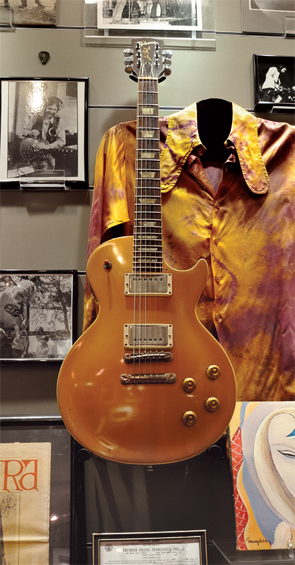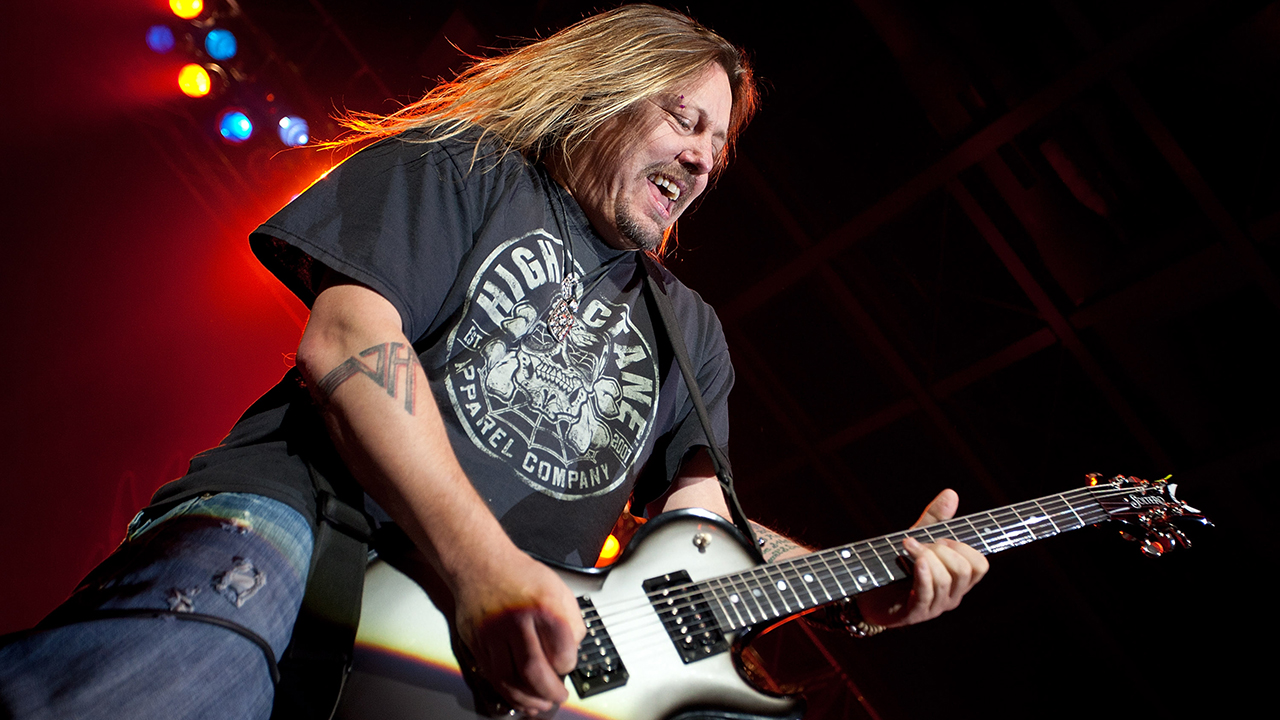The Story of Duane Allman's Long-Lost 1957 Gibson Les Paul Goldtop
All the latest guitar news, interviews, lessons, reviews, deals and more, direct to your inbox!
You are now subscribed
Your newsletter sign-up was successful

From the GW archive: This story was originally published in the January 2011 issue of Guitar World.
Duane Allman played a gorgeous 1957 Gibson Les Paul goldtop for the first 18 months of his two and a half years in the Allman Brothers Band.
He played the goldtop on the band’s first two albums, which featured the original versions of “Whipping Post,” “In Memory of Elizabeth Reed,” “Midnight Rider,” “Revival” and other classics, and he played it on his numerous sessions with other artists, including Derek and the Dominos’ 1970 masterpiece, Layla and Other Assorted Love Songs.
Then Allman swapped the guitar for a sunburst Paul, and this piece of rock and roll history disappeared into the ether.
Now the goldtop is back where it belongs: in the spotlight. Today, Duane’s former guitar is on display at the Allman Brothers Band Museum at the Big House in Macon, Georgia.
What’s more, it can be heard on a new recording, Guitar Magic, by the Skydog Woody Project, which also features the 1976 Gibson Thunderbird bass once owned by late ABB/Gov’t Mule bassist Allen Woody.
The story of how Duane and the goldtop became separated is a classic tale of guitar lust.
All the latest guitar news, interviews, lessons, reviews, deals and more, direct to your inbox!
On September 16, 1970, the Allmans played a show in Duane and Gregg Allman’s hometown of Daytona, Florida. Duane, fresh off recording Layla with Eric Clapton and company, was, as usual, playing his ’57 goldtop.
The opening band was a local group called the Stone Balloon, whose guitarist, Rick Stine, was playing a 1959 cherry sunburst Les Paul, which caught Duane’s eye. While making Layla he had fallen in love with Clapton’s cherry sunburst. Wanting one of his own, Duane offered to swap Les Pauls with Stine. When Stine balked, Allman upped the ante, throwing in $200 and one of his regular Marshall 50 heads.
Stine agreed, but Duane had one caveat: he wanted the goldtop’s pickups for his new ’burst. The electronics were swapped, and the deal was done. Exactly one week later, on September 23, Allman played his new guitar when the Allman Brothers Band performed at the Fillmore East in New York City, a fact born out by video footage from the show. He played his new cherry ’burst throughout the rest of his career, which ended far too soon when he was killed in a motorcycle crash on October 29, 1971.
Meanwhile, Allman’s original goldtop drifted around Daytona, passing through the hands of three different owners, the last of which eventually sold it to a local guitar store. In 1977, the shop sold it to Gainesville guitarist Scot LaMar. He’d heard from his friend Billy Bowers that Duane’s Les Paul was for sale in Daytona, and he rushed to the store to purchase it. He paid $475, a fair price for a vintage Les Paul in 1977.
The goldtop had some damage, including a bite mark on the headstock from a previous owner’s dog. LaMar had two respected luthiers refinish the guitar, but he was dissatisfied with the results and eventually had the instrument refinished by Tom Murphy, the man behind the Gibson Historic series and probably the most renowned “goldtop guy” in the world. The guitar was restored to its original glory and placed on display at the Allman Brothers Band Museum at the Big House.
Opened last year in the communal house where various members of the band lived, played and jammed together from 1970 to 1973, the Big House Museum includes thousands of artifacts from the ABB’s career. The goldtop is displayed along with artifacts directly related to it, including a shirt given to Duane by Clapton during the Layla sessions and two amps Duane used with the guitar: a Fender Showman and a 50-watt Marshall head, which were sometimes used together.
Other items on display at the museum include Berry Oakley’s Fender Jazz “Tractor” bass and Showman amp, a T-shirt from the first-ever run of ABB merchandise, a Fender Bassman that Dickey Betts used during the band’s earliest days and one of Duane’s Marshall cabs. It also includes a recreation of the famous Fillmore East stage, where the band recorded its landmark At Fillmore East live album in 1970. The display includes a set of vintage Ludwig drums used by Butch Trucks from 1968 to 1970, and a pair of road cases with stenciled lettering pictured on the cover of At Fillmore East.
The guitar will be on display at the Big House at least through this year, and probably longer. “The guitar is where it belongs right now,” LaMar says. “People need to appreciate it and see it.”
Remarkably, LaMar’s generosity with the instrument includes a firm belief that it should be played as well as viewed. “It’s a real living legend and it shouldn’t exist only behind glass,” he says. “It’s a shame to me how many of our greatest guitars have become dead artifacts.”
Putting his money where his mouth is, LaMar recently lent the goldtop to guitarist Joe Davis, who used it to record Guitar Magic, which also features bassist Garry Harper playing Allen Woody’s Gibson Thunderbird bass, on loan from Woody’s father. Davis and Harper released the album under the name the Skydog Woody Project, an amalgam of Woody’s name and Duane’s nickname, Skydog. “There was magic in these instruments,” Davis says, “and it impacted everything we did.”
The project got rolling after Davis heard about the goldtop and got in touch with LaMar, who invited him to come visit. The two men spent a few days hanging out, but while LaMar showed Davis many to-die-for vintage axes, the goldtop was not among them. “I think he was testing me out,” Davis says. “He took me swimming in alligator-infested water and watched how I acted and how I treated the guitars. During those days, I got discouraged that I might never even see the goldtop because it wasn’t discussed. But we made a great friendship, which started with our mutual love of Jimi Hendrix and Duane Allman.”
At long last, LaMar produced Duane’s 1957 goldtop and shocked Davis by asking if he wanted to play it. “I knew right away that this is the perfect guitar,” Davis says. “I went home satisfied that I got to see the Layla guitar and thrilled that I got to play it.”
Davis could barely dream that within months he would be in the studio recording an album with that piece of rock and roll history. “It’s the first time I‘ve recorded an album and not thought about how it will sell at all,” says Davis, who has released four other CDs. “I’m just thinking about how it happened and feeling very pleased that I had this opportunity.”
LaMar says he was just happy to see and hear the guitar being put to good use. Derek Trucks has also performed with the instrument, and LaMar hopes Warren Haynes will lay his hands on it soon as well. “I want people to see it and hear it,” LaMar says. “It’s not my guitar; it’s Duane Allman’s. I’m just babysitting.”
Photo: E.J. Devokaitis
